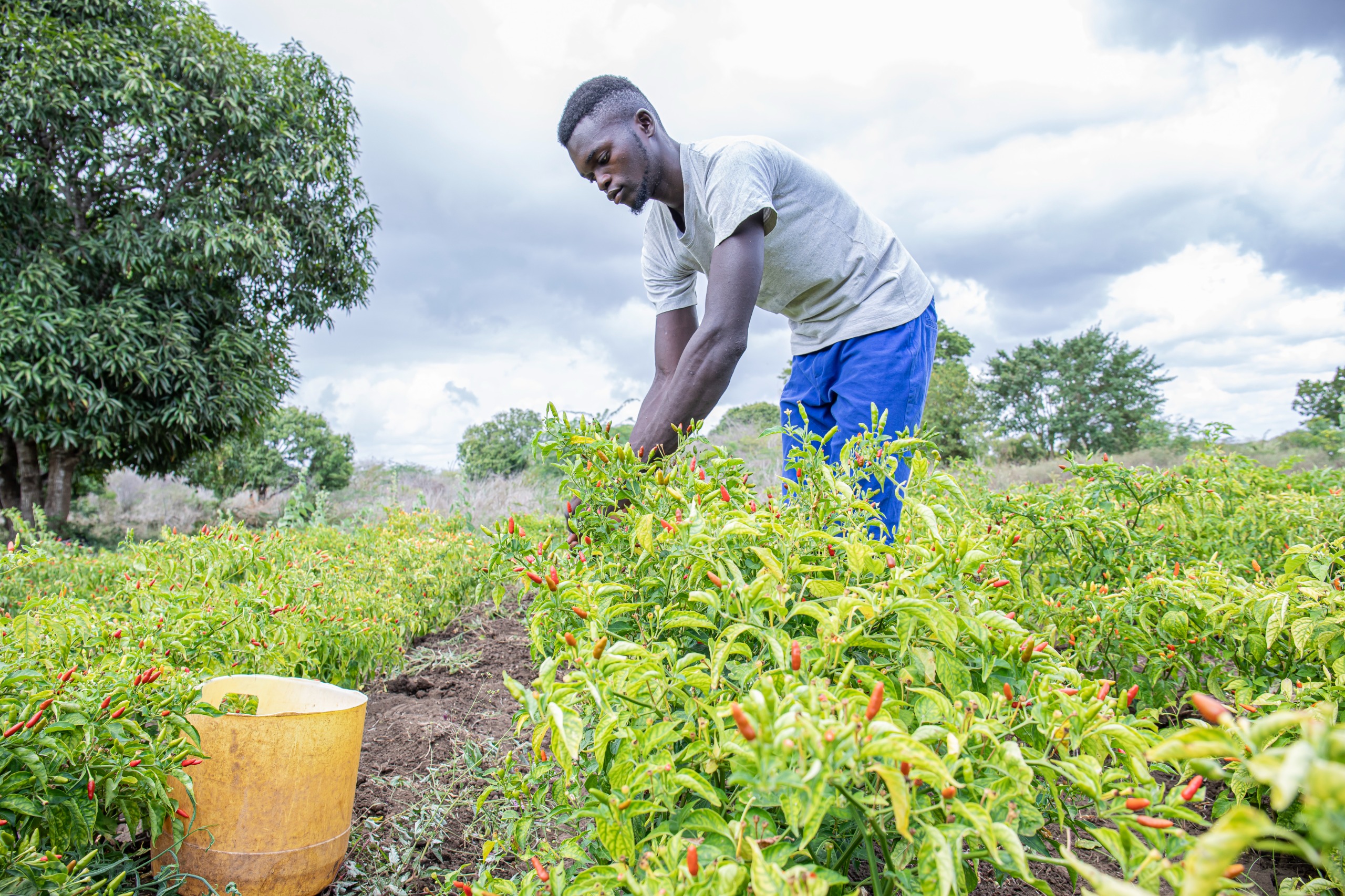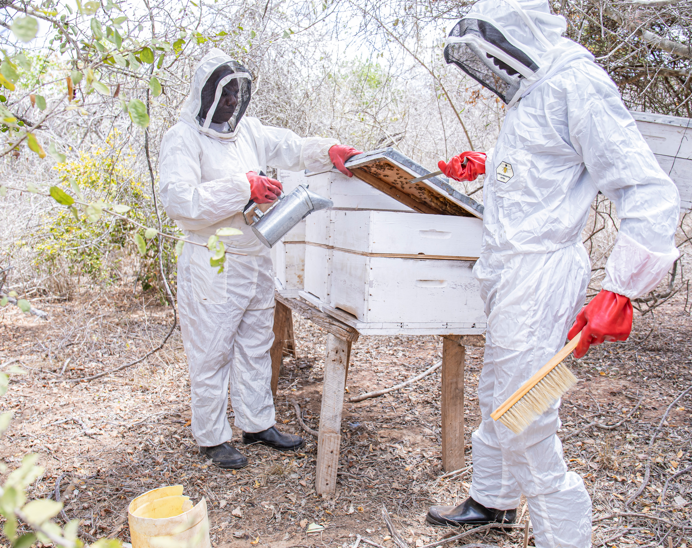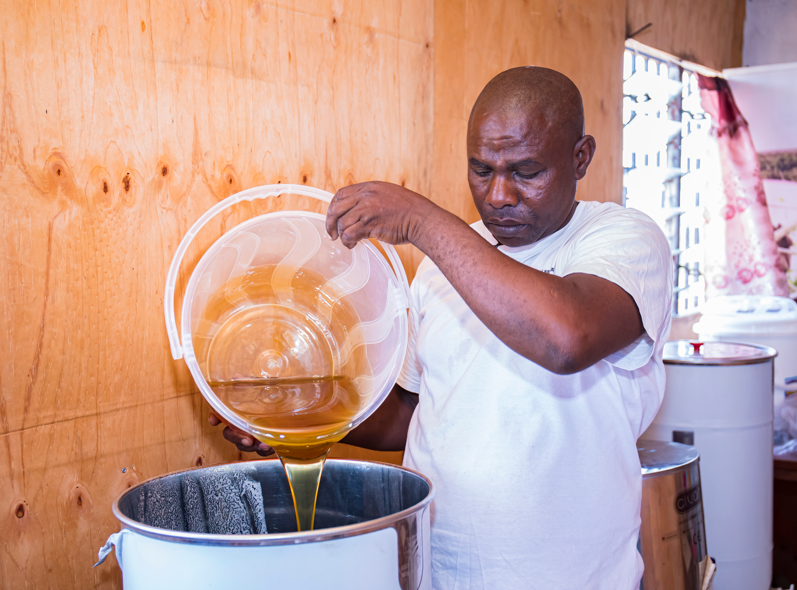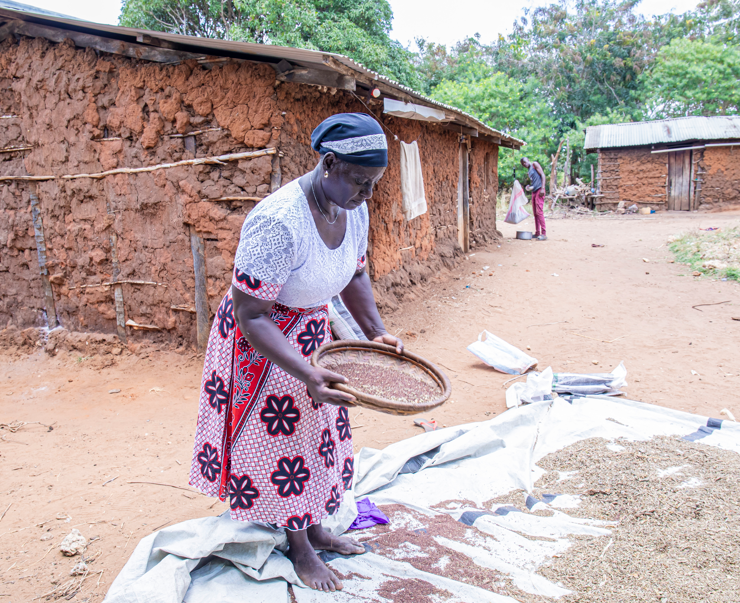
As the clouds gather and the swollen Tana River signals the onset of the rainy season, a sense of hope rises in the air.
The landscape of the Tana Delta, once marred by erratic weather patterns and land degradation, is witnessing a remarkable transformation.
Today, the region is being reclaimed through conservation, sustainable agriculture, and community-driven innovation.
At the heart of this transformation are various community groups, each playing a crucial role in the revival of the region.
Maurice Kadenge, a beekeeper from one of these groups, shares his story of change.
Once a charcoal burner and a hunter, Maurice now stands as a proud advocate for sustainable farming.
"When I started, I was one of many who relied on destructive practices to make a living," he reflects.
"I used to cut down trees, hunt wild animals, and engage in activities that were harmful to the environment."
Maurice and his group found a new path in beekeeping, an endeavour that sustains their livelihoods while contributing to the conservation of the land.
"The TDCN (Tana Delta Conservation Network) has been pivotal in connecting us to industry players," says Maurice.
"Through their support, we've been able to produce honey sustainably, and with the backing of African Beekeepers Ltd, our honey has a guaranteed market."
Through the Tana Green Heart Initiative, Maurice and his group found a new path in beekeeping, an endeavour that sustains their livelihoods while contributing to the conservation of the land.
The Tana initiative links local farmers to established markets and ensures that each farmer's hard work is rewarded.
Maurice now works alongside nearly 900 farmers in over 120 groups, all committed to promoting sustainable farming practices.
He expresses how beekeeping has not only transformed his life but also brought his community together, creating a sense of shared purpose and long-term sustainability.
"Now, I can feed my family and send my children to school. It's a profound change."
African Beekeepers Ltd director Ernest Simeoni says they approach organisations to try and fit in Honey production with their conservation work.
“They are connected with so many groups especially in the Tan Delta, we thought maybe that would be a good angle to do a business model where we are setting up out growers (the community) and having a company African Beekeepers to partner and produce honey where a farmer will get a sustainable return,” Simeoni says.
As he speaks, bees are seen buzzing busily around the wooden bee boxes, their movements a graceful blur of wings in the warm air.
Some dart in and out of the narrow entrances, legs dusted with golden pollen, while others hover momentarily before disappearing into the hive’s depths.
But bee farming is just one of the ways to sustain a living around Tana Delta.

SUSTAINABLE AGRICULTURE
In a village not far from Maurice’s apiary, Mercy Wanyama leads a women's group that has embraced sustainable farming as a means of both economic empowerment and environmental stewardship.
The group’s focus on sesame farming has not only provided them with steady income but also fostered a sense of unity and shared achievement. Mercy credits the collective strength of the group for their success.
"When you’re part of a group, there’s always someone to guide you and ensure you’re on the right path," she explains.
Through their partnership with Nature Kenya, they received the necessary training and resources to thrive in the competitive agricultural sector.
“Nature Kenya helped us understand the importance of proper farming practices. It was a game-changer for us,” she says.
The group's efforts have been fruitful.
Their sesame harvests are now helping them secure financial independence, with many of the women using their earnings to educate their children and invest in their futures.
Mercy emphasises that the group’s success lies in their unity and their ability to learn from each other.
"We are not just growing crops; we are growing together as a community," she says.
Nature Kenya executive director Paul Matiku says the Tana Delta presents an opportunity for conservation-linked businesses, especially tourism.
“The Tana Delta is one of the most beautiful places on Earth. It's a Kimba and diverse area. It has possibly the highest concentrations of crocodiles one can ever come across,” Matiku says.
According to Matiku, if the water upstream can be managed, it's possible to grow food. And this is being done.
“The Tana Delta has millions of livestock, meat, and Kenya is a meat-eating society. All these are opportunities that investors can come in and invest in. The other benefits that come from the Tana Delta, include opportunities that we have listed and more that investors can identify in the Tana Delta,” he says.
Their story is an inspiring example of how women, in particular, are not only contributing to environmental conservation but are also lifting themselves out of poverty.
By linking them to markets and providing training, the initiative ensures that their efforts have long-lasting effects on both their economic standing and the environment.

RESILIENT FARMING AMID ERRATIC WEATHER
In Ozi village, where rice cultivation has long been a tradition, Ustaadh Mohammed Mashaka is one of the key figures leading the charge against erratic weather patterns that have devastated crops in the region.
As he proudly shows us the Sindano Mai rice variety, his passion for the land is evident.
"This rice grows well even when the water levels rise," he explains.
"When the floodwaters increase, it becomes taller and adapts to the changing conditions."
The community has gained access to resilient seeds, better agricultural practices, and crucial market connections.
"Last year, we harvested eight tonnes of rice from this field," Mashaka shares.
"The support we received has enabled us to not only feed our families but also sell our produce with a steady income.”
According to the Ministry of Environment, Climate Change and Forestry Department Director Kennedy Olwasi, beekeeping and rice farming aim to put the land back into good use.
“The aim is to get back the land and put it into productive use for various priority value chains at a cost that can be beneficial to the people,” he says.
Olwasi says the government partnered with Nature Kenya, the Tana River and Lamu county governments to implement programmes to advance the land use plan.
“To ensure long-term sustainability beyond these interventions, a Green Investment plan was developed, enabling locals to benefit from the resources while preserving nature,” he says.
He says this gave rise to the Tana Green Heart Project.
Lower Tana Community Conservancy chairperson Said Nyara encouraged tourists to visit the delta.
“Even the fresh air you breathe in the Tana delta cannot be found anywhere else,” he says.
“The scenic beauty is one of a kind, and you also meet various bird species. So you will enjoy. That's a beautiful model that creates demand, which is supposed to help the other parties “

Mercy Wanyama sifting sesame at her home in Tana River /HANDOUT











